MarComm Series: A New Business Climate of Empathy, Equity, and Integrity
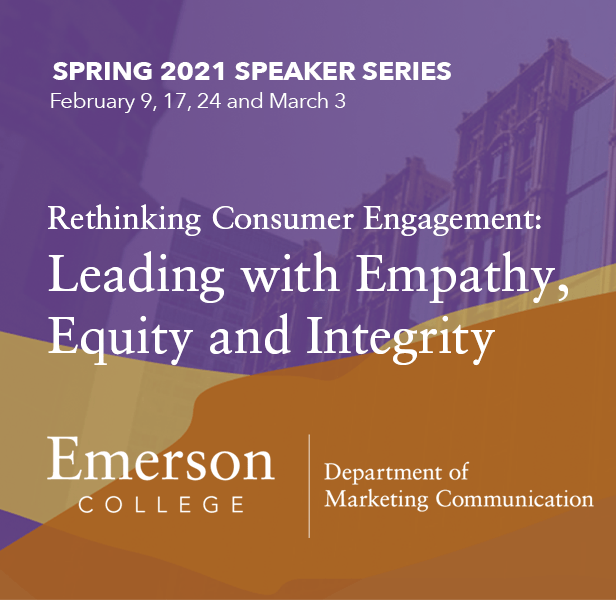
This semester, the Department of Marketing Communication hosted a four-part speaker series, Rethinking Consumer Engagement: Leading with Empathy, Equity and Integrity, which explored a new climate in the business community—one that emphasizes empathy, equity, and integrity over adversity and conflict. At each event, industry experts discussed how to redefine leadership and engagement in order to do better business, and build a better future. Here is just a small taste of the rich insights they shared…
March 3: A Conversation with Jay Francis, VP – Current Series & Diversity, Walt Disney Company
Francis addressed the role of the arts in creating a more equitable society, and the importance of diversifying talent and leadership across the creative enterprise. He was interviewed by Kristin Lieb, Associate Professor, Marketing Communication. (Full program available here.)
Tell us about a project that you’re particularly proud of—that has met the ideals that you’re shooting for.

“The project I’m thinking of is not a show; it’s the talent recruitment program that we created. With regard to talent, we have always looked for ways to highlight innovation in anything we do. That was always the thing with Walt, and this is part of the process—making sure that we have a wonderful and diverse group of talented individuals who are passionate about what they do and bring a unique perspective based on their upbringing, their experiences, where they’ve come from, their culture, their heritage. So, as I said earlier, it would be foolish for us to not tap into that—especially when folks are saying, ‘Please, let me help bring more to the table than just the fact that you hired me to do this, to draw characters or to write this script.’ But first, you have to make sure that they do the job they were hired to do well.”
Feb. 24: Reset Buttons: How Today’s Consumers Are Showing Us What Really Matters
A timely discussion between experts in technology, media, marketing, and other fields as they interpreted how today’s consumers are resetting their priorities about what matters. Moderated by Professor Brent Smith, chair, Department of Marketing Communication. (Full program available here.)
What can consumers do better to serve their own interests?

“After this year, we’ve probably never been more siloed and isolated in our own communities and who we talk to. Because of the fatigue, it’s hard to reach across sometimes and make new connections. I’d encourage people, whether it’s as consumers or as people, just to reach out and to talk to more people. Talk to as many different kinds of people as you can, because we’re well aware that the country’s divided—politically, economically and socially. Whatever we can all do on an individual basis to bridge those divides would be good for everyone. [In regards to] local business, what’s downtown going to look like after this? Are office workers coming back at reduced rates, and the ripple effect that has on merchants, businesses, small stocks, restaurants, so just think about where you want to spend your dollars, as we’ve been talking about here.”
Greg Huang,
Business Editor, Boston Globe
If you had one piece of advice to give students, from your own experience, on being a good leader or a good communicator, what would that be?
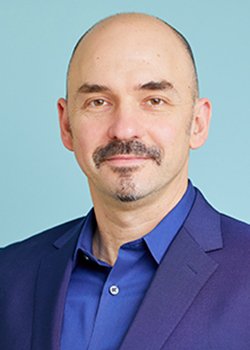
“No matter if you’ve started a website, if you’ve created a restaurant, or leading a band, the people you’re building your team around will let you know right away if you’re an effective leader, no matter what your title is. It starts with being an advocate for the team, and being an advocate for the consumer of your product. And that starts with empathy—with putting yourself in their shoes. If they’re staff, it’s ‘What’s their work-life balance?’ If it’s the user, ‘What’s the user problem?’ You always have to ask yourself, what’s the problem statement you’re solving?”
Brian Gottesman,
Head of Video and Monetization Products, FlipBoard,
We’re seeing very clear evidence of the consumer “co-producing” with companies, with impacts on what the brand should mean, or what it’s trajectory should look like. No generation before has had that kind of gravity. How does a company or brand respond to consumer involvement?
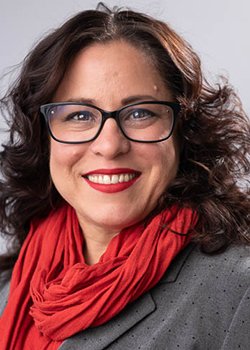
“It’s about inviting those consumers who are willing to share with you their experiences and then actually taking them into account . Truly making them “pro consumer”— truly making them a part of the conversation. And those people in your boards and your management and in the field that are diverse voices—really actually listening to them.”
Cinthia Beccacece Satornino, PhD,
University Connecticut School of Business
Feb. 17: Women in Business Leadership
With history being made at the White House, this panel consisted of women who have paved the way from tech PR to media and the arts. Through their own perspectives, they discussed the challenges that still face women, and emphasize the necessity of having women in leadership roles for creating a more equitable society. Moderated by Lu Ann Reeb, assistant dean for the School of the Arts, and director of Entrepreneurial Studies and Business Studies.
(Full program available here.)
In a study called “Women in the Workplace”—conducted among 270 North American companies by LeanIn.org and McKinsey—20 percent of the women commonly said they were “the only” person of their gender in the room. For women of color, that number is 45 percent and for men, it was just 7 percent. Have you ever been “the only” in a room?
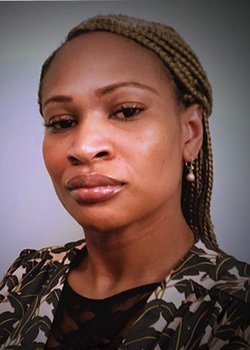
“I think I have a hard time remembering when I wasn’t ‘the only.’ So many of us, even since childhood, had the experience of being the only woman or the only person of color in a room. It’s so much a part of our experience that we’ve learned to cope with it… It is so important that when we are ‘the only’ in a room, to really speak up on behalf of the people not in the room—to be advocates for “other.” And it’s sometimes hard to do that because you’re speaking to people who are maybe older than you—people who are in charge of an organization—so it requires a certain degree of bravery, and tapping into this idea of integrity.”
Danielle Bias,
Director of Communications, Whitney Museum
How can we do better as team leaders, in terms of championing, mentoring, recruiting, promotion?

“I take on recruiting by myself if I have to, because that’s just the way it rolls because nobody has time… I take on more in terms of advocacy with other organizations and extending that opportunity to other employees, so they’re also working with different communities. As far as what I hope to do myself, just from a communication standpoint, is being bolder and more risky in what I say and how I represent myself to others. Maybe I can do that where I’m in my career now. I really, really hope that the younger generations will do that a lot sooner. I wish I were in my 20s again and a little more bold. That’s difficult because it means my livelihood is on the line, but at this point I’m willing to put that on the line.”
Nuna Charafeddine,
Director of Operations, Three Uncanny Four, JV w/ Sony Music
Integrity is the quality of being honest, having strong moral principals and values on which you act. Can you give an example of when your integrity was challenged in business, and how did you handle that?
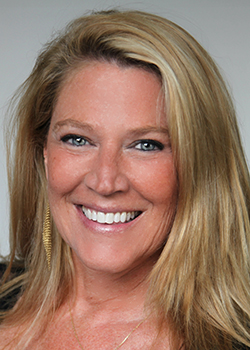
“We’ve had many clients that came to us and kind of wanted us to make everything look a lot better. We had an executive ask, ‘Hey, we need to raise some money. Can I show you my investor deck?’ And they’re totally inflating what their product and technology can do. We told him we don’t do this, we don’t risk our own relationships by being complicit in your fakery.
PR is not about spin. Spin is a four-letter word. The best PR is honest and it always getting down to the truth and presents a message within the confines of the truth and reality, and can make it as compelling as possible—but only for the purpose of building trust, relationships, empathy, and openness.”
Sabrina Horn,
CEO, Horn Strategy LLC,
Author of Make It, Don’t Fake It: Leading with Authenticity for Real Business Success
Feb 9: A Conversation with Tim Gunn
As previously reported in Emerson Today, the educator, author, and fashion expert Tim Gunn shared his life journey, and took the audience through the long-lasting positive impact of kindness, honesty, empathy, and mentorship in an otherwise cutthroat industry. Interview by Sharon Tolpin Topper, Department of Marketing Communication.
How do we embrace the “unexpected” of what lies ahead?
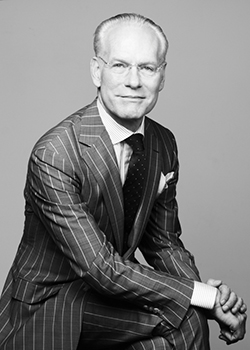
“A message I want to send to the entire Emerson community is: Life’s path is very serendipitous, you never know where it’s going to take you. … I hated school. I loved learning, I loved absorbing knowledge, but I hated the social aspects. So to become a teacher was the furthest thing from what I imagined.”
Tim Gunn
Producer, Making the Cut and Project Runway
Categories